Then led they Jesus from Caiaphas unto the hall of judgment: and it was early; and they themselves went not into the judgment hall, lest they should be defiled; but that they might eat the passover.
John 18:28 KJV
the Praetorium – in the Palace of Power
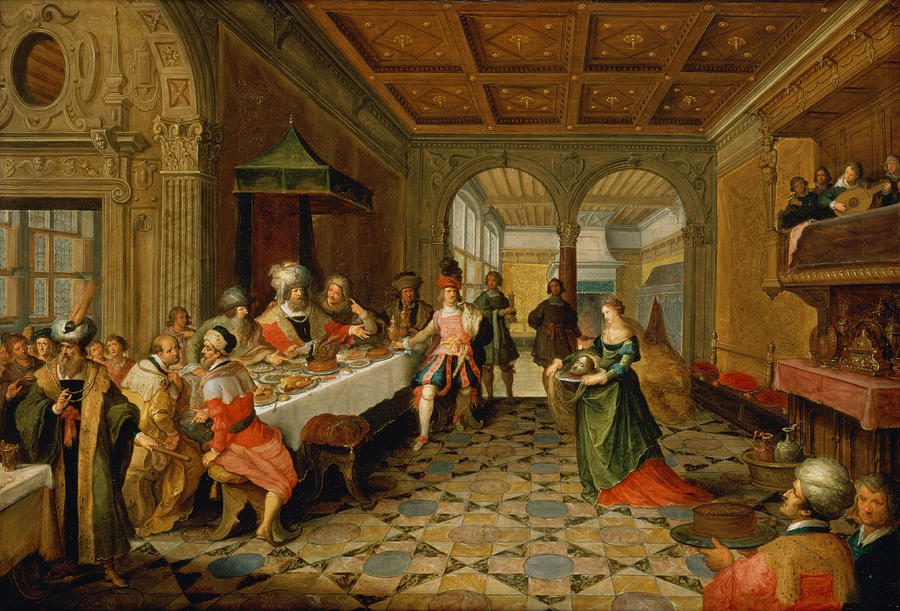
I don’t know about you, but the rapid-fire events of the conviction of the Messiah Jesus in so brief a time in the early hours of the day confuses me concerning the places these trials took place.
If you have a comment of clarification please add it to this post.
IF, unlike those present at the Lord’s first century trials you do not understand who is in charge, the venues of Jesus’ trials can get a little confusing.
You may ask, ‘What does this banquet hall of Herod..’ (where King Herod had been presented the head of John the Baptist) ‘.. have to do with the Messiah Jesus on this morning following the betrayal of Judas?’
The Praetorium is a semi-public place where Jesus has been sent — this place is on the grounds of the palace of King Herod.
Let’s look back briefly at the history of the keys players in this developing drama which convicts the Messiah Jesus at night.
King Herod
Briefly, the history of the Herod’s gets complicated at times, but remember here that we are not talking about Herod the Great who navigated the complex politics of Rome with great agility.
After Herod’s death, Augustus Caesar ratified the wishes of his client king, Herod, to divide this eastern territory of Rome into three parts.
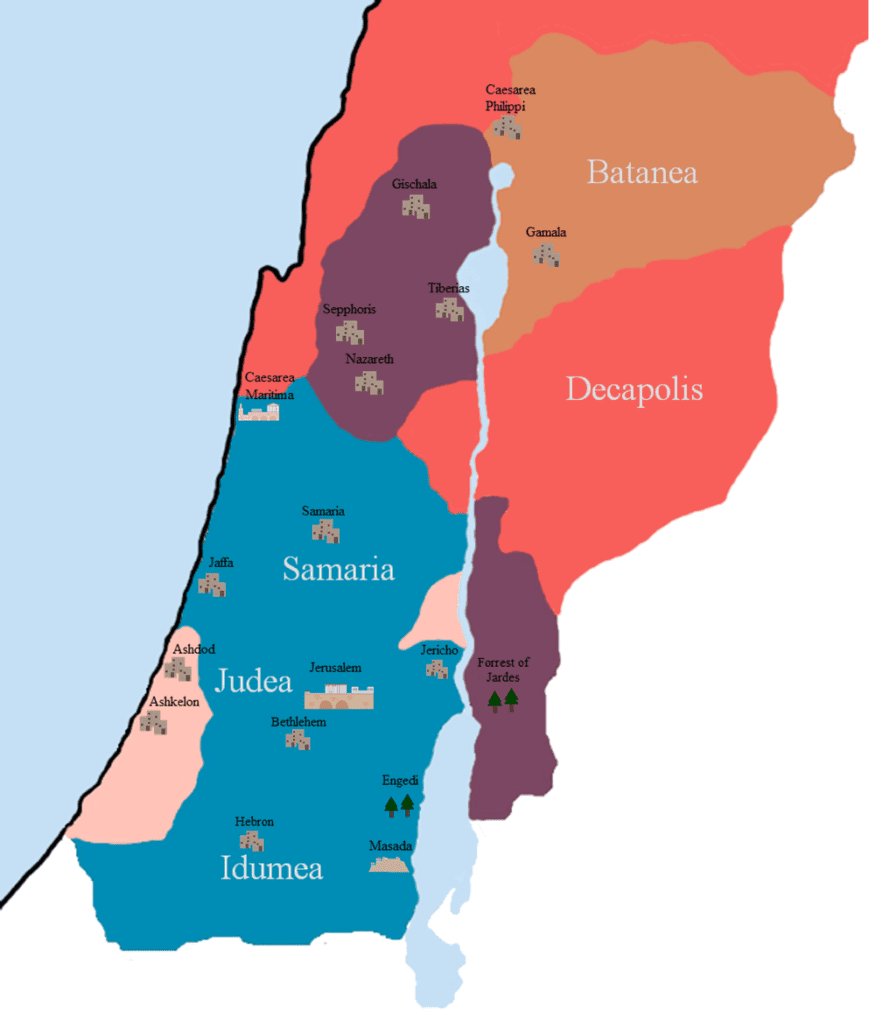
Source: Herodian Tetrarchy From Wikipedia, the free encyclopedia
- Herod Archelaus was appointed Ethnarch (a governor & not king) of Idumaea, Judea (including Jerusalem) and Samaria.
- Herod Antipas (simply, Antipas to the Romans & his subjects, but described as ‘Herod‘ in the Gospels) became Tetrarch of Galilee (including Nazareth and Capernaum) and Perea.
- Philip I, son of Herod the Great and Cleopatra of Jerusalem, became Tetrarch of the northern part of Herod’s kingdom (area in modern Lebanon & Syria).
‘Governor Herod‘
You've never heard Herod called that, have you?
This is no longer the Jerusalem of Herod the Great! Jews are now considered merely as an ethnic people and Judeans an ‘ethnic group’ similar to nearby client Roman states. They are now governed as a regional people rather than as a small kingdom allied to Rome for mutual military advantage.
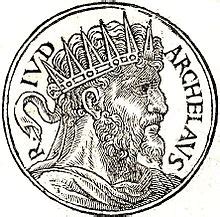
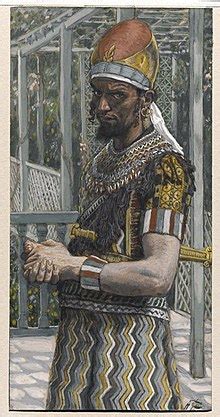
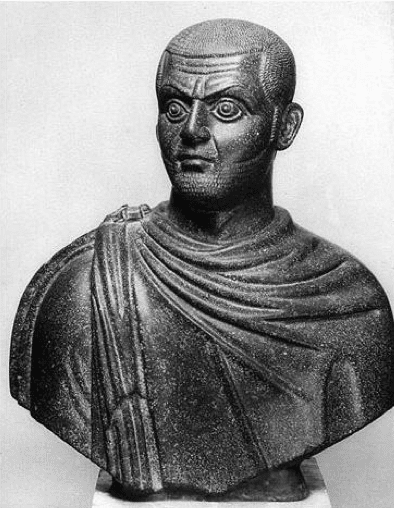
Ethnarch (technically) is a Roman rank just a little higher than Tetrarch. (Kind of like Arch-Bishop is to Bishop in the church.)
Judean Governors (like Herod) sometimes appear politically and practically to be more Roman than like traditional sons of David.
IF these Herod’s were officially governors of their respective Roman regions, i.e. Judea, Galilee, Ituria, etc., — who then governed the governors?
Who governs these Jews?
John now addresses the question of who’s in charge in Jerusalem, who’s in charge of Judea, which Tetrarch governor of which ethnic region has authority in what was once the Kingdom of Israel.
As Jesus is dragged from place to place for trial the quiestions mount:
Is He a Judean? A Galilean? A Jew with authority in Jerusalem? A would-be King? Who IS this Man?
Other Gospel writers have hinted earlier how this delicate duality of rule in first century Jerusalem provided opportunity of great hypocrisy among the rulers of the Jews and their religious political parties, i.e. Sadducees, Pharisees, etc..
The scribes and the chief priests tried to lay hands on Him…
So they watched Him, and sent spies who pretended to be righteous, in order that they might catch Him in some statement, so that they could deliver Him to the rule and the authority of the governor.
Luke 20:19a,20 NASB
“Is it lawful for us to pay taxes to Caesar, or not?”
But He detected their trickery and said to them,
“Show Me a denarius. Whose likeness and inscription does it have?”
They said, “Caesar’s.” – Luke 20:22-24 NASB
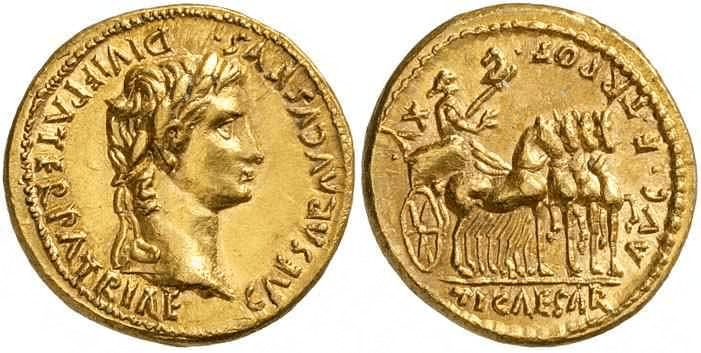
John 18:
28 Then they led Jesus from Caiaphas into the Praetorium, and it was early; and they themselves did not enter into the Praetorium so that they would not be defiled, but might eat the Passover.
29 Therefore Pilate went out to them and said,
“What accusation do you bring against this Man?”
the Praetorium – palace of the Governor
WAIT! Even knowing something of the political intrigue and complexity of the Herod’s, I’m still confused.
Again, please comment if you can help or have a question.
Note that the King James Version {at beginning of this post} states:
‘Then led they Jesus from Caiaphas unto the hall of judgment…’
I get that a hall of judgment could be a large room in the palace.
Note now in the NASB translation,
‘.. into the [a]Praetorium..’
AND by definition:
πραιτώριον = Praetorium [note a]
‘John 18:28 i.e. governor’s official residence’
Why is Pilate there?
Why does Pilate emerge from the Governor’s palace to greet the religious police who have taken the Messiah Jesus into custody?
The CSB clearly calls it 'the governor’s headquarters.'
Wasn’t Pilate’s headquarters outside Jerusalem’s walls with the Roman Legion he commanded?
NO!
When Rome moved into a captured land they ‘civilized’ its remaining residents to become supporting (taxed) residents (not citizens) under Roman rule. As long as they paid their taxes and did not rebel against Roman authority these local Jews could do what they want with their own ethnic people.
What accusation?
Roman custom is such that some public judgments are made from the court of the Governor in charge. Pilate asks the local Jewish leaders who have led a prisoner to him the reasonable question of a Governor and Judge:
https://www.blueletterbible.org/nasb/jhn/18/1/t_concf_1015029Τίνα κατηγορίαν φέρετε κατὰ τοῦ ἀνθρώπου τούτου
“Tis katēgoria pherō kata ho anthrōpos hoytos?
John 18:29 – question of Pilate to the Jews who brought Jesus before him
These Jewish leaders of Jerusalem have brought a prisoner to Pilate in the earliest hours of the morning. Pilatos, the sixth Roman procurator of Judah and Samaria, addresses them in the universal language of the vast Empire, Greek — not his native Latin, the religious Hebrew tongue of these Jews or a local Aramaic language.
Their prisoner bound for trial appears to be Jesus, who had led thousands of followers to Jerusalem’s gates just a few days ago. Pilate would already know that the Man has not caused any trouble, except one minor incident within the courts of the Jews own Temple.
The Governor has plenty to be concerned about for the upcoming day in monitoring the massive multitudes here for the Jewish holiday Pesach.

Imagine the thoughts of Pilatos:
You’ve brought a prisoner to the governor in these early hours of this busy day?
What does your warrant accuse that I should imprison the Man now?
I have more important things to do than trifle with such matters of your religious concern.
So Pilate, the governor, went out to them and asked,
“What is your charge against this man?”
John 18:29 NLT
To be continued...
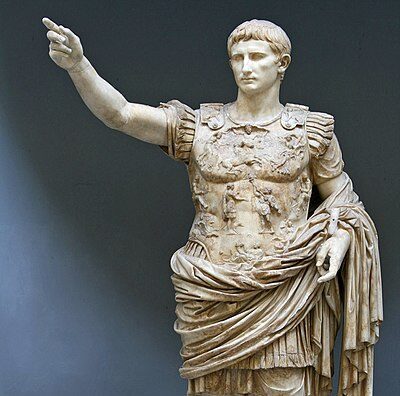

Leave a Reply